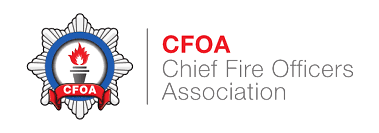New partnership helping fire services share knowledge and research
New partnership helping fire services share knowledge and research
The Chief Fire Officers Association (CFOA), Fire Industry Association (FIA) and the Fire Service College (FSC), have come together to form a new research and development partnership. A joint memorandum of understanding, which was signed this month, clearly demonstrates each organisation’s commitment to collaborate around the future evaluation of Fire and Rescue Service (FRS) operational equipment.
The partnership will see joint research and evaluation, making it easier for Fire and Rescue Services (FRS) to share information and choose the most effective operational equipment.
Many of the UK Fire and Rescue Services currently need to undertake separate evaluation of operational equipment, this results in replication of costs for public sector, manufacturers and suppliers.
The recently created Research, Development, Technology and Innovation (RDTI) Hub situated at the Fire Service College at Moreton in Marsh in Gloucestershire will provide the venue for this unified activity going forward.
The Hub is part of the wider UK FRS Research and Development Function led by CFOA and supported by fire and rescue services across the United Kingdom. This national collaborative approach will enable services to access evaluations and information about operational equipment they may wish to use, share knowledge and learning more effectively, conduct academic research and reduce replication across the sector. This will result in financial savings and increased coordination across the fire and rescue services.
Building and maintaining collaborative relationships across the wider emergency services sector is a critical success factor in this initiative. CFOA has a network of contacts in the academic research field, as well as the National Operational Guidance Programme and the recently established Procurement Hub; all of which will be key relationships for UK FRS Research and Development.
This collaboration will also help manufacturers and suppliers to engage with fire and rescue services at a much earlier stage – meaning fire professionals will have more input into how products are designed. This will help to reduce development times, minimise costs and will result in equipment being produced and put into use more quickly.
Minister for Policing, Fire, Criminal Justice and Victims, Mike Penning, said: “I’m delighted to see this research and development partnership come together. Initiatives such as this demonstrate the kind of collaborative working the government wants to see embedded across the fire and rescue service, sharing expertise and knowledge and supporting services to be more efficient and effective. I hope this initiative is embraced by all fire and rescue services and I look forward to seeing the results of their work.”
Geoff Howsego, CFOA Director for Corporate Services and Sector Improvement, said: “The UK R&D Function will help us to understand how we make a difference and improve how we currently evaluate, research and test equipment, while identifying new ways of working. It will incorporate all areas of research and development, including academic research, product development and testing, and implementation, along with procurement and evaluation of impacts.”
The FIA CEO, Ian Moore, said: “Having supported and been involved in the development of this initiative, we’re delighted that the CFOA, FIA and FSC triumvirate is to deliver more effective and efficient R&D and related processes across our fire and rescue services. We’re confident that this collaborative approach will be of immense benefit both to the FRSs and the suppliers to the sector and will result in further improvements in responses to fire and other emergency incidents.”
Martin Thomas, FSC Managing Director added: “The announcement of better joint working coincides with the Home Secretary’s speech about Fire Reform (May 24th) where the Rt Hon Theresa May MP outlined her fire reform agenda to bring ‘radical transformation to the service’, including prioritising accountability and transparency across the sector.”
Published May 2016

